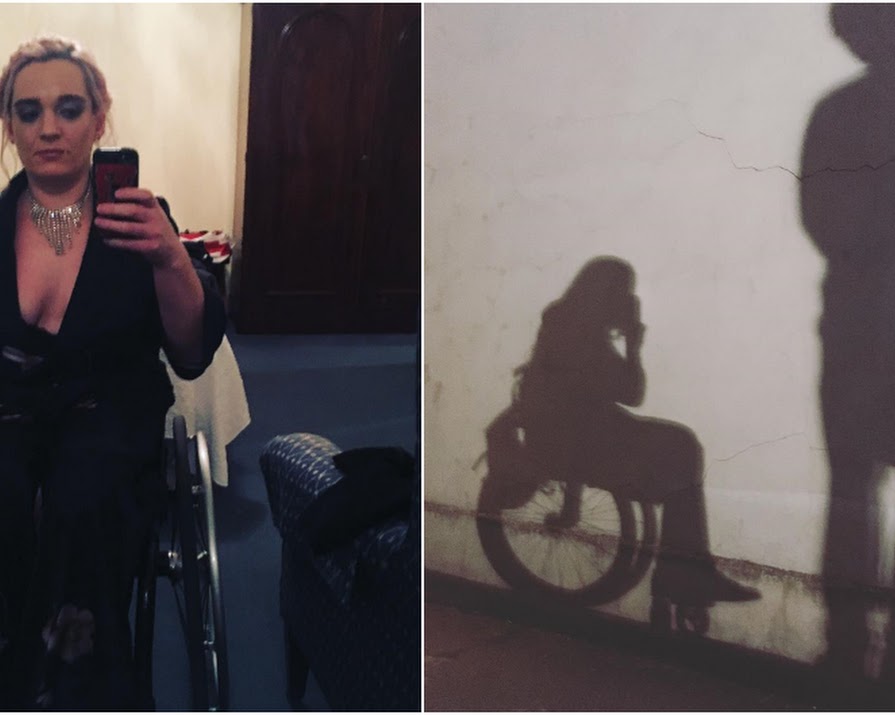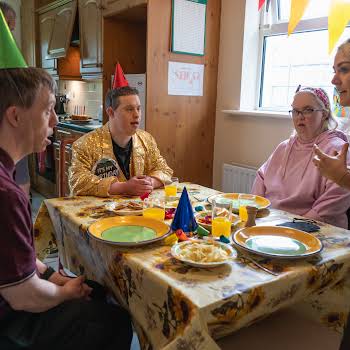By Louise Bruton
10th Oct 2019
10th Oct 2019
Ableism - Louise Bruton via instagram - accessability
Occasionally, I get messages from friends, colleagues and total strangers asking me to clarify what is and isn’t considered ableism. The phrase “stand up” gets a lot of slack, from stand up comedy to awareness campaigns asking people to stand up against cancer, depression or bullies. After submitting an article, I was once advised by an editor to change “walking my dog” to “rolling with my dog” for clarity that I am in fact a wheelchair user who cannot walk. Whether that’s clarity for me or the reader, the jury is still out. I wish I had the privilege of losing sleep over those things when the actual, living definition is so hard to define when it’s so ingrained in daily life.
I could define ableism like Mufasa and say “everything the light touches…” but thankfully, I’ve got the forum to explain how ableism affects someone living with a disability. Ultimately, it’s not just the world’s physical design — from trains that never meet the platform level to supermarkets that stock their produce on unreachable shelves — but it’s the solution that adds a sting to this always open wound.
The solution to the above is; book in assistance 24 hours in advance and hope that the person whose job it is to bring a ramp to the train carriage arrives on time or wander the aisles until you find a staff member or an approachable person and, if they didn’t mind, could they please reach for the coriander on the top shelf?
Ableism is always having to ask for help…
The solution in these cases is to outsource help. Whether you’re shopping or making your way to work, you always have to resign to the idea that you can’t be fully independent. That’s what ableism boils down to. It’s not just the actual lack of facilities but it’s having to accept that the solution isn’t actually a solution either.
So, in my experience, I guess my ableism is always having to ask for help and to be at the mercy of someone else, especially when that help comes in the shape of being lifted up a flight of stairs. My ableism can be defined as a constant exhaustion from other people’s best not being good enough.
When you take on the role of an activist, you can feel some power from the work that you do, but asking for the coriander on the top shelf? I struggle to find the power in that. Or when the only way you can have a dance with your friends is to be lifted upstairs fireman style? No. It’s moments like this that get me. That’s the ableism that’s harder to explain.
Sometimes it makes sense and sometimes it doesn’t
The thing I wish more non-disabled people would understand is the tiredness that cushions ableism. When you list out the ways in which your disability separates you from the rest of the world, it’s an emotional workout that takes a physical toll. It’s almost like you have a set limit of what you can accept a day and, even then, that changes depending on the day.
One day, you can share a knowing look with the bus driver as people continue to stand on the bus’s unfolding ramp, causing it to fold right back even though the robotic “Warning! Wheelchair ramp opening!” alarm could not be any clearer. Another day, that might be the final straw. In the same way that trying on a pair of boots that simply will not fit can mean nothing one day, it could be the thing that causes the uncontrollable and sobbing tears, the kind that can only be solved from a phone call to your mum. Sometimes it makes sense and sometimes it doesn’t.
Ableism is a reminder of what we’re up against
A brave face is something that we learn as disabled children and we carry that on into our adult lives. However, as the challenges change, our brave face can become a little worn. And while it’s easy to frame the people carrying out these acts of ableism as strangers on the street or evil CEOS, it’s often our nearest and dearest accidentally doing them too.
I recently snapped at a very close friend who kept saying “get into your wheelchair” instead of “get out of the car” because at the end of a long day filled with micro and macro challenges, I just didn’t want to hear the word ‘wheelchair’. It’s contradictory and, yes, I know it’s childish, especially when I use the word ‘disabled’ as a term of empowerment. But sometimes, ableism feels like a refusal to see anything but my wheelchair.
Non-disabled people worry and fret over their disabled loved ones. Of course, we worry and fret for all the people we hold dear, but this worry and this fret can sometimes come packaged as a limit to what they view us as capable of doing. And even though you just want me to get out of the car, on a bad day, the way it’s phrased feels like a reminder to all that I’m up against.
It’s difficult to pinpoint ableism because, on the good days, the blame can be directed at corporations and global brands. On the bad days, it’s your friends and family. Ableism is so many things and while it’s not stand up comedy — although it can certainly come from stand up comedians — I can confirm that it’s ever-changing and always testing.
Photos: Louise Bruton via Instagram
Read more: Dublin has been named the most accessible city in Europe: here’s why I disagree with that
Read more: ‘A wheelchair gave me physical freedom, but my third lease of life comes from buying tickets for one’
Read more: Accepting my disability and accepting being disabled























